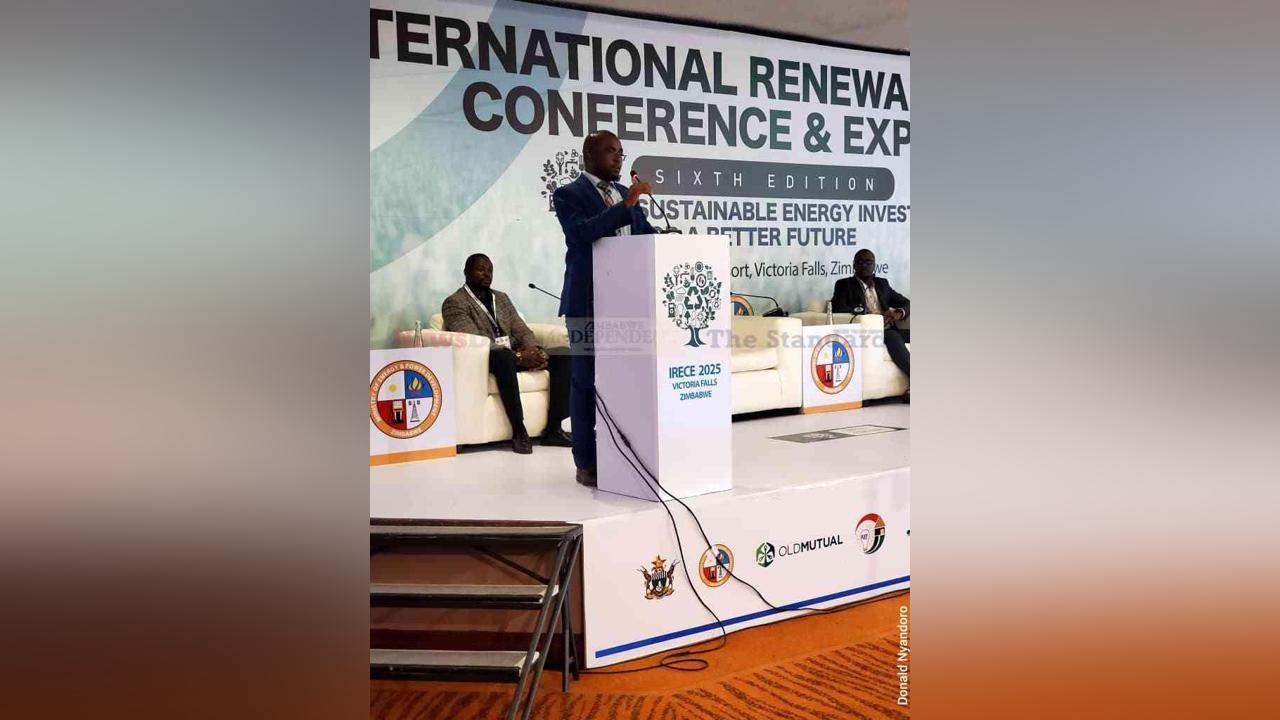Africa-Press – Zimbabwe. THE Mines and Mining Development ministry has called for collaboration in the production of energy storage systems and equipment and value-addition in a bid to leverage the abundant lithium in the country.
Speaking at the International Renewable Energy Conference and Expo in Victoria fall yesterday, energy minerals officer Hillary Mukodzani said stakeholders should leverage on the Zimbabwe’s ban on the export of raw minerals to value-add the mineral.
Zimbabwe has the largest lithium reserves in Africa and ranks high among global lithium-producing countries.
Chinese companies have made significant investments in Zimbabwe’s lithium sector, including acquiring major lithium projects and constructing processing plants.
However, government aims to leverage on its lithium resources to drive economic growth, create jobs and develop a thriving battery manufacturing sector.
“Globally, we are working towards achieving net-zero emissions by 2050. According to the International Energy Agency, demand for critical energy transition minerals will triple by 2030, with lithium demand expected to increase eightfold and graphite and nickel demand rising sevenfold,” Mukodzani said.
“In response, our government banned the export of unbeneficiated raw minerals in 2023 through Statutory Instruments 5 and 57.
“This move aims to promote local value chains and create a battery manufacturing hub in Zimbabwe.
“We have adopted a phased approach, starting with concentrates and now focusing on lithium salts, specifically lithium carbonates and hydroxides, to produce locally made lithium batteries.”
He said government is committed to completing the mines to energy park in Mapinga in the next two years, urging companies to submit their beneficiation plans as part of their licensing process.
“Zimbabwe has all the necessary raw materials for lithium battery production, including lithium for the cathode and graphite for the anode. To further support this initiative, we are establishing the first mines to energy park in Mapinga, targeting completion by 2027,” he said.
“To ensure value-addition and maximisation of mineral exports, mining companies must submit beneficiation plans as part of their licence application process. This strategic move enables us to export minerals in the highest value-added form possible.
“With the necessary raw materials and collaboration between government, industry and academia, we can make lithium batteries in Zimbabwe.”
Presenting on the same platform, Zimbabwe Electricity Transmission and Distribution Company engineer John Chikeya noted that the country is making commendable progress on net metering increasing power on the national grid.
“Last year, we set a 50-megawatt capacity for net metering and many thought it was ambitious. However, in November, we surpassed that goal, reaching 53 megawatts of net metering capacity connected to the grid,” he said.
“As of today, we have 59,3 megawatts of net metering capacity, with 32 megawatts already commissioned and exporting power to the grid in the past year.
“During peak sun hours, we are powering industrial and commercial loads, including cargo and shipment operations, virtually or through experts.
“This demonstrates the potential of net metering in aggregating small-scale solar systems to address national energy challenges.”
Chikeya noted that the company is now focusing on advanced net metering methods and energy storage systems.
“What is even more exciting is the integration of battery energy storage with net metering. We can now store excess solar energy generated during the day and use it during peak hours to reduce load shedding. Regarding battery energy storage, a 1 800-megawatt-hour proof of concept is underway, with site visits completed and adjudication in progress,” he said.
“We are also seeing significant interest from investors in battery energy storage for domestic distribution and advanced net metering.
“Advanced net metering is now being explored to bring benefits to households without solar systems, through public-private partnerships and NGOs [non-governmental organisations].
“The necessary internal work has been completed, and we’re awaiting grant clearances before announcing expressions of interest.”
Chikeya said approximately 800 000 represent a significant opportunity for net metering, with an estimated 4 000 megawatts of capacity which needs to be tapped into.
He said: “Net metering allowed households and businesses to generate their own electricity and export excess to the grid. Battery energy storage systems can help to stabilise the grid and increase the penetration of renewable energy sources.”
Jinko Solar head of technical energy storage systems Titus Koech said there was need for Zimbabwean investors to focus on energy storage systems (ESS).
“The ESS is a critical component of our project. We have designed and developed an advanced ESS that meets our energy needs and provides various benefits. The ESS is a complex system that requires advanced technologies to operate efficiently and effectively,” he said.
“We are leveraging on advanced technologies, including artificial intelligence and machine learning, to optimise the ESS and improve its performance. A lot of investment needs to be put into ESS systems for renewable energy to be more beneficial to the country.”
For More News And Analysis About Zimbabwe Follow Africa-Press






